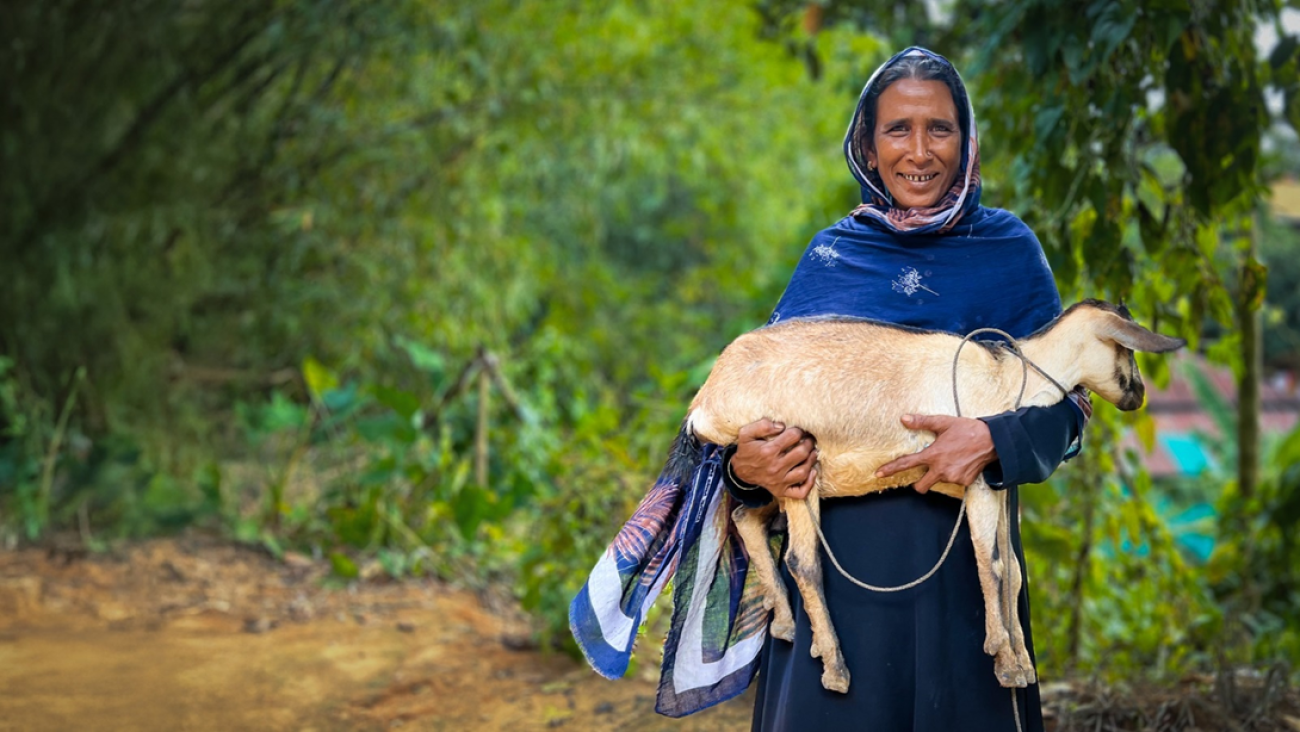A Journey to Empowerment and Justice

Empowering Communities Through Local Mediation: A Path to Justice and Peace in Cox’s Bazar
October 28, 2024
In Cox’s Bazar, where access to formal legal systems is often limited, Enhancing Community Safety, Peaceful Co-Existence, and Access to Justice (CSPC) project of the United Nations Development Programme (UNDP) is transforming how local disputes are resolved and making a sustainable impact in the community. This initiative empowers marginalized communities by building local capacities for conflict resolution, fostering social cohesion, and ensuring peaceful co-existence. By establishing Mediation Forums and training local mediators, the CSPC project offers a community-based justice mechanism that is accessible, cost-effective, and grounded in local realities. It plays a vital role in promoting peace, especially in regions struggling with poverty and limited legal infrastructure.
One success story is that of Noor Ayesha, a 45-year-old woman who endured a five-year dispute after selling her cow to a trusted villager, Nurul Alam. Despite the agreement, Nurul Alam failed to pay the agreed amount of BDT 95,000 (USD 865).
For years, Noor Ayesha pursued the payment but was repeatedly met with excuses. She struggled and got tired of running after the village leaders to recover her money as well. With no written agreement, she began to lose hope until she discovered the Mediation Forum facilitated by UNDP’s CSPS project. With help from trained local mediators like Khurshida Akhtar, the forum provided her with a path to justice without the burden of expensive legal battles. After negotiations led by Khurshida, a female community leader, the two parties reached a settlement: Nurul Alam agreed to pay BDT 50,000 (USD 455), and Noor Ayesha waived the remaining balance.
Both parties expressed satisfaction with the outcome, recognizing the importance of documentation in future transactions. Noor Ayesha, used the recovered money to invest in agricultural land, buy a goat, and contribute to her son’s wedding. Reflecting on the experience, she said, "I am happy with the outcome of the mediation, which settled a five-year-long dispute. I’m glad I could use the recovered amount to support my family’s future."
Khurshida Akhtar, the female mediator, is a true example of leadership in the community. With 20 female mediators under her guidance, Khurshida is empowering other females with the mediation knowledge she gained from UNDP training. "I want to empower more female mediators so that the mediation process remains successful and sustainable, even in my absence. I want to create more female leaders like me," she shared.
The community is also happy to see the project’s impact. Mohammad Hossain, a local resident, said, “This mediation forum has brought hope to our village. We used to think justice was only for those who could afford lawyers, but now we see that peace and fairness are possible for everyone.”
This case highlights the power of mediation in promoting social cohesion and ensuring access to justice for marginalized communities. By building local capacities to resolve disputes, the CSPC project, aligned with SDG 16, fosters a culture of peace where justice is accessible, affordable, and community-driven and is supported by the Bureau of Population, Refugee and Migration, US Department of State (BPRM) and UNDP’s Global Programme for Strengthening the Rule of Law, Human Rights, Justice, and Security for Sustainable Peace and Development.







